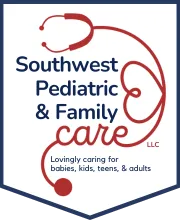
New Trauma Stewardship and Organizational Support for Clinicians During Mental Health Awareness Month Blog Post
May is Mental Health Awareness Month, a time to elevate conversations around emotional well-being, destigmatize mental health challenges, and highlight the vital role of clinicians who care for others daily. As we honor this important month, it is essential to recognize that raising the mental health of the clinicians themselves is just as important as the services they provide. Behavioral health professionals work tirelessly on the frontlines of trauma, grief, and suffering, often at great cost to their own emotional reserves. The concept of trauma stewardship, introduced by Van Dernoot Lipsky (2009), offers a framework for understanding how clinicians can sustain their capacity to care without being overwhelmed by the weight of their work.
Trauma stewardship is more than self-care; it is a practice of conscious engagement that invites clinicians to reflect on how they are affected by their exposure to others’ pain. Lipsky (2009) urges helping professionals to cultivate awareness and balance, reminding us that the ongoing impact of trauma can manifest subtly through fatigue, cynicism, isolation, and detachment. This is why it is vital that organizations—especially those in behavioral health and social services—prioritize the well-being of their clinicians, not only through policies but through culture and daily practices.
Organizational leadership plays a critical role in mitigating the risks of burnout, compassion fatigue, and vicarious trauma. One of the most effective strategies is the integration of trauma-informed care principles across all levels of service. These principles emphasize safety, trust, empowerment, and collaboration, not only for clients but for staff as well (Center for Health Care Strategies, n.d.). Providing ongoing training in trauma stewardship and offering reflective supervision can also give clinicians the tools to process their emotional labor in a healthy and productive manner.
Furthermore, raising awareness around clinician mental health must be paired with tangible support systems. These include mental health days, wellness programs, flexible scheduling, and clear pathways for clinicians to access counseling and peer support. Organizations can also provide resilience training and facilitate dialogue around emotional challenges to normalize the experiences of stress, grief, and overwhelm that are common in caregiving roles (Hunsaker et al., 2020).
To care for patients effectively, clinicians must be cared for themselves. Van Dernoot Lipsky (2009) argues that sustained compassion requires intentional self-awareness and support. This view is echoed by Newell and MacNeil (2019), who state that self-care is not optional but essential in ethical practice. Research has demonstrated that clinicians who regularly engage in self-care experience lower rates of compassion fatigue and are more effective in their roles (Hunsaker et al., 2020). In promoting a culture of care for caregivers, organizations send a powerful message: your mental health matters.
This Mental Health Awareness Month, let us not only raise awareness about mental illness among the general population but also commit to safeguarding the mental health of those who provide care. It is only through supporting our clinicians—celebrating their resilience, acknowledging their burdens, and investing in their wellness—that we can create truly sustainable and compassionate systems of care.
References
1. Center for Health Care Strategies. (n.d.). What is trauma-informed care? Retrieved from https://www.traumainformedcare.chcs.org/what-is-trauma-informed-care/
2. Hunsaker, S., Chen, H. C., Maughan, D., & Heaston, S. (2020). Factors that influence the development of compassion fatigue, burnout, and compassion satisfaction in emergency department nurses. Journal of Nursing Scholarship, 52(2), 187–195. https://doi.org/10.1111/jnu.12537
3. Newell, J. M., & MacNeil, G. A. (2019). Professional burnout, vicarious trauma, secondary traumatic stress, and compassion fatigue: A review of theoretical terms, risk factors, and preventative methods for clinicians and researchers. Best Practices in Mental Health, 15(2), 57–69.
4. Van Dernoot Lipsky, L. (2009). Trauma stewardship: An everyday guide to caring for self while caring for others. Berrett-Koehler Publishers.



